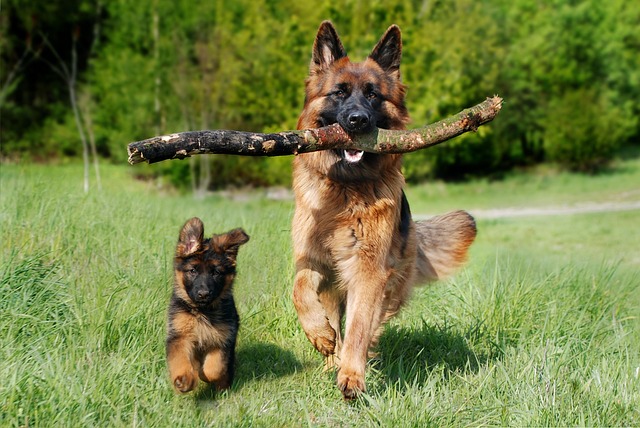Tips for Training Puppy
Training a puppy is extremely challenging, and it isn’t something that you can do in a week’s time. However, taking the right approach to training is going to help your new addition learn the ropes as quickly and effectively as possible.
Prioritize Your Puppy To Refrain From Biting
Learning how to stop a puppy from biting you will spare you from a lot of frustration. One of the biggest ways that puppies learn about the world around them is with their mouth. Also, while they are teething, they are prone to biting just about everything that they encounter in order to alleviate their discomfort, including their favorite humans.
Unfortunately, puppies’ first set of teeth is extremely sharp. Nature has designed their first set of teeth like tiny little razors to prompt mothers to begin the process of weaning them off of their milk. Until a puppy’s adult teeth come in, usually around eight or nine months, you’ll need to keep your guard up while you are playing with your new furry family member.
When your puppy bites you, don’t have a big, dramatic reaction. Puppies commonly mouth or bite people to get their attention, and they won’t necessarily care if it’s positive or negative attention. Resultantly, shouting or scolding your puppy very loudly could reinforce this type of behavior.
Rather than an emotional, angry reaction, you can simply yelp to let your puppy know that it hurt you. This is something that puppies do with their littermates. They learn to stop biting hard in play when a littermate expresses pain by yelping and ending their playtime. In fact, this is one of many reasons why it is so important to avoid separating puppies from their mothers and litters before they are eight weeks old.
Distract Your Puppy With Toys When It Makes Trouble
Make it a point to keep toys in arm’s reach at all times. That way, you’ll have something to offer as a substitute if your puppy gets a hold of something that it shouldn’t have such as an article of clothing or it sinks its tiny chompers into your hand.
Once a puppy accepts your substitute, applaud it enthusiastically. Act impressed with your precocious troublemaker’s toy-biting skills, and give it positive affirmations by enthusiastically telling it, “good boy” or “good girl.”
You may be alarmed if it seems as though your puppy thinks the purpose of toys is destroying them. In reality, this is totally natural. Puppies relish tearing stuff. For them, it’s one of the highest possible forms of entertainment and self-expression.
Don’t get mad at your puppy for wrecking a toy. Instead, just let your pint-sized vandal have at it. However, if your pup is pretty consistent about ripping toys apart, you should refrain from giving it toys that are filled with stuffing. If a puppy ingests just a moderate amount of stuffing, it could bring on a serious health emergency. Stick with rope toys, balls, and other stuffing-free options. When you’re perusing toys at the pet store, go for durable items that can withstand sharp puppy teeth.
Use Time Out as a Training Tactic
If a puppy persists in unruly conduct after you have tried to discourage and distract it, give it a brief time out. Over time, your puppy will get the message that certain unwanted behaviors such as biting or destroying non-toy items are a surefire way to bring a fun play session to an abrupt halt.
Generally, a few minutes is a sufficient period for an effective time out. Time out doesn’t need to be in a small, confined area. Simply put your puppy in any room in your house where it won’t have access to you and can’t amuse itself with other things
Lastly, consider working with a trainer. This can be especially helpful for teaching your puppy advanced training concepts, and you can take advantage of a professional’s expertise from the comfort of home by opting for a virtual training program.

